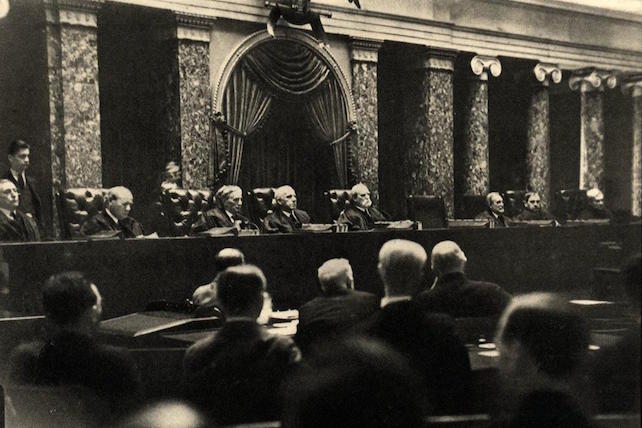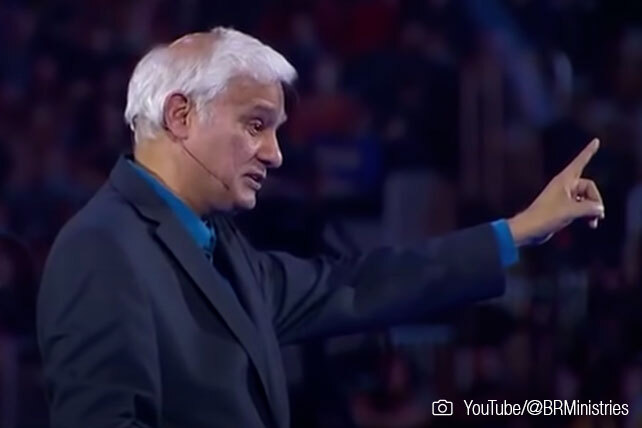There’s a killer at loose in the church, a spiritual assassin with a long line of casualties to his name. He assaults relationships, our bodies, our bank accounts, our prayer lives, and, if we’re married, even our sex lives. He doesn’t seek headlines, though—he’s content to never be known, to simply do his best work quietly, without notice.
His name, in previous ages, was “sloth.” Today, we call him laziness. And his reach is as extensive as it is devastating.
Laziness is more than a sin—it’s an attitude that undercuts our sense of duty to God and our obligation to our neighbor, and an attitude that wastes our lives. Laziness is an attitude that puts one’s personal comfort above all else—if I don’t feel like it, why do it? If it’s uncomfortable, why bother? If it’s not fun, what’s the use? Laziness ignores any sense of obligation and defines sin exclusively as something we shouldn’t do (conveniently forgetting all that we are commanded to do), and it ends up wasting our lives in a spectacularly nonscandalous fashion so that we don’t see just how destructive it is.
When we are neglectful with our physical bodies, part of us dies. We can avoid the wisdom of exercise and responsible eating, but we do so at our peril and accordingly will miss many opportunities to do good works. An out-of-shape Christian loses the will, inclination, and ability to enjoy much of life because physical activity becomes too taxing. He or she wants to sleep more, eat more, and lie around more rather than be truly engaged in life.
If we are lazy in our business, our finances will gradually erode until we become charity cases instead of generous givers. If we are lazy in our faith, we will even drift from God. Neglect and laziness kill the best things in life.
In one very real and intense sense, laziness undercuts the image of God in us. Johannes Tauler makes precisely this point:
“The Heavenly Father, in His divine attribute of Fatherhood, is pure activity. Everything in Him is activity, for it is by the act of self-comprehension that He begets His beloved Son, and both in an ineffable embrace breathe forth the Holy Spirit … Now since God has made His creatures in His likeness, activity is inherent in all of them.… Is it surprising, then, that man, that noble creature, fashioned in God’s Image, should resemble Him in His activity?”
Ask yourself: What is the opposite of God’s activity and generosity? Wouldn’t it be doing nothing and giving nothing?
In other words, laziness and neglect!
The Bible is ruthless in condemning laziness and in warning against its consequences in various arenas of life:
“Go to the ant, you sluggard;
consider its ways and be wise! …
A little sleep, a little slumber,
a little folding of the hands to rest—
and poverty will come on you like a thief
and scarcity like an armed man.”
Proverbs 6:6, 10–11
“The craving of a sluggard will be the death of him,
because his hands refuse to work.”
Proverbs 21:25
“We want each of you to show this same diligence to the very end, so that what you hope for may be fully realized. We do not want you to become lazy, but to imitate those who through faith and patience inherit what has been promised.”
Hebrews 6:11–12
Spiritual Laziness
Being a Christian is the highest joy imaginable for any human being. It is also, however, hard work. Listen to Paul’s account:
“One thing I do: Forgetting what is behind and straining toward what is ahead, I press on toward the goal to win the prize for which God has called me heavenward in Christ Jesus. All of us, then, who are mature should take such a view of things.”
Philippians 3:13–15
Consider the phrase “all of us, then, who are mature should…” Paul isn’t showcasing his piety here or nominating himself for a Christian of the Year award; he’s laying down a standard to which every believer should aspire. According to his inspired words, a mature Christian will strain toward what is ahead. Commentator Jac. Müller writes, “The verb used here is very descriptive, and calls to mind the attitude of a runner on the course, who with body bent forward, hand stretched to the fore, and eye fixed on the goal, strains forward with the utmost exertion in pursuit of his purpose.”
I mention this because many will say getting in shape physically, changing the way they eat, making time for exercise, being disciplined to work out even when they don’t feel like it, is too much effort. It sounds like works-righteousness. It might even lead to legalism. And since laziness and overeating don’t seem like scandalous sins, we let them slowly but steadily steal our health away.
This concession fosters an attitude that will eventually erode our spiritual life as well. Laziness is like pride—we can’t turn it on and off. It becomes a part of who we are. If we coddle laziness in one area of our lives, we’ll succumb to it in other areas too. Sins are, by nature, self-reproducing. Selfish people are selfish in every way. How they drive, how they spend their money, how they talk, and even how they serve is marked by selfishness. In the same way, if we become lazy with our physical health, we are likely to become lazy with our spiritual health. The reverse is also true. Cultivating discipline in physical fitness can make us more apt to be disciplined in spiritual fitness.
Can we value work as Paul did? I love his comments in 2 Timothy 2:6, when he tells his young protégé to “reflect” on the fact that it’s the “hardworking farmer” who gets the first share of the crops. This is such a brilliant metaphor that it’s sad I’ve neverheard a pastor preach on it. Much of a farmer’s work—unlike, say, that of an athlete, solider, or politician—is done behind the scenes, without any glory, applause, or excitement. Ancient farming, particularly in the days before mechanized harvesting, was grueling work based largely on perseverance and consistent effort. That’s the metaphor Paul uses to describe the hard, often anonymous work of a Christian as he or she pursues God and is used by God.
The renowned John Stott warns, “This notion that Christian service is hard work is so unpopular in some happy-go-lucky Christian circles today that I feel the need to underline it … It may be healthy for us to see what strong exertion [Paul] believed to be necessary in Christian service.” Indeed, as Stott points out, Paul—the champion of salvation by grace through faith—gloried in the fact that “I worked harder than all of them,” explicitly referencing his hard work in 1 Corinthians 15:10, 2 Corinthians 6:5, and Philippians 2:16. Paul always ties his labor to God’s energy and provision but never in a way that God’s provision puts Paul to sleep, and certainly not as an invitation to a life of neglect.
Physical fitness is like farming. Much of the work that produces it is unseen. No one is applauding or even recognizing our efforts. But the life it creates can be used by God to bless and serve many. The “planting” is grueling; the harvest can be great.
Up or Down
The ancient writers of the Christian classics viewed the spiritual life as either an upward progression or a downward spiral. To them, there was no plateau. We are either growing or dying. That’s why they feared, hated, and shunned laziness. Listen to Lorenzo Scupoli (16th cent.):
“This vice of sloth, with its secret poison, will gradually kill not only the early and tender roots that would ultimately have produced habits of virtue, but also habits of virtue that are already formed. It will, like the worm in the wood, insensibly eat away and destroy the very marrow of the spiritual life.”
Henry Drummond (19th cent.) also tackled spiritual laziness. He believed an intentional, purposeful effort is essential to spiritual growth:
“What makes a man a good cricketer? Practice. What makes a man a good artist, a good sculptor, a good musician? Practice. What makes a man a good linguist, a good stenographer? Practice. What makes a man a good man? Practice. Nothing else. There is nothing capricious about religion. We do not get the soul in different ways, under different laws, from those in which we got the body and the mind. If a man does not exercise his arm he develops no biceps muscle; and if a man does not exercise his soul, he acquires no muscle in his soul, no strength of character, no vigor of moral fiber, nor beauty of spiritual growth. Love is not a thing of enthusiastic emotion. It is a rich, strong, manly, vigorous expression of the whole round Christian character—the Christ-like nature in its fullest development.”
Doesn’t this make sense? Don’t we know from every other endeavor in life that to do nothing is to watch things disintegrate? That a business has to be managed, a garden has to be weeded, a body has to be washed, a child has to be parented? Why should we think it any different when it comes to the health of our souls?
“No man can become a saint in his sleep,” Drummond advises, “and to fulfill the condition required demands a certain amount of prayer and meditation and time, just as improvement in any direction, bodily or mental, requires preparation and care.”
Living a life of diligent labor, faithfully discharging all the duties God has given us, is the most fulfilling life any of us can ever live. It’s the life we are designed to live. It’s the life that on our deathbeds we will wish we had lived (or be grateful for those times we did live it). In the end, the last thing I want to hear from my Lord is, “You wicked, lazy servant!” (Matthew 25:26). Instead, don’t we all long to hear, “Well done, good and faithful servant!” (verse 21)?
Let’s cultivate hearts and bodies that will lead to this end.
Gary addresses sloth in Every Body Matters
*Johannes Tauler (fourteenth century), a Dominican monk, was a disciple of Meister Eckhart and a key voice of the influential German mystics. He spent most of his life in the Order of Preachers, and his writings had a significant impact on Martin Luther.













